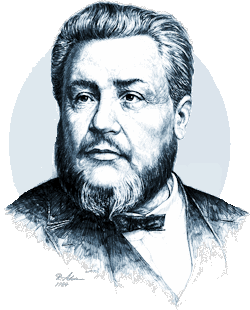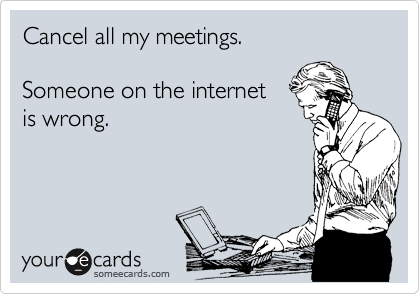
|
 f you read many blogs, you must be aware by now that on Saturday Justin Taylor posted a link to that video and expressed his belief that Rob Bell's doctrine is rather seriously unorthodox. Justin's commenters' went crazy, racking up hundreds of comments before noon. Many of them angrily insisted that Justin's judgment about Bell is premature and uncharitable. One blogger said so in an open letter to Justin, and most of his commenters agreed, too.
f you read many blogs, you must be aware by now that on Saturday Justin Taylor posted a link to that video and expressed his belief that Rob Bell's doctrine is rather seriously unorthodox. Justin's commenters' went crazy, racking up hundreds of comments before noon. Many of them angrily insisted that Justin's judgment about Bell is premature and uncharitable. One blogger said so in an open letter to Justin, and most of his commenters agreed, too.On the other hand, The Bayly brothers thought Justin had failed to speak as strongly as he should.
 Of course, we at TeamPyro have been saying for some time that Rob Bell is a dangerous false teacher. So it should come as no surprise that we share Justin's opinion that Rob Bell "is moving farther and farther away from anything resembling biblical Christianity." We also share the Baylys' opinion that Justin could have been even more emphatic than he was.
Of course, we at TeamPyro have been saying for some time that Rob Bell is a dangerous false teacher. So it should come as no surprise that we share Justin's opinion that Rob Bell "is moving farther and farther away from anything resembling biblical Christianity." We also share the Baylys' opinion that Justin could have been even more emphatic than he was.Nevertheless, all the standard judge-not-lest-you-be-judged responses were quickly trotted out and set in array against Justin. The chorus of voices repeating the theme across the evangelical blogosphere over the weekend has been overwhelming. Justin's original post garnered about a thousand comments over the two-day weekend—an almost unheard-of volume in the Christian blogosphere. The topic swiftly trended on Twitter. Commenters seemed hyperactive on almost every blog where the subject was mentioned, and most of them were critical of Justin and defensive of Rob Bell.
Bell's latest heresy neither surprises nor interests me. What does intrigue me is the tragic drift of popular, mainstream evangelicalism. Here we see clearly why the evangelical movement is in grave trouble: The passions of today's self-styled evangelicals are easily aroused in defense of someone who makes a career dabbling around the edges of truth. Rob Bell likes to play with damnable heresies as if they were Lego bricks, and yet anyone who points out the glaring errors in Bell's teaching will be met with a wall of angry resistance from young, self-styled Christians who grew up in the evangelical mainstream.
Where is that much passion ever employed these days in defense of the truth?
I'm not looking for crass watchbloggers or anti-intellectual zealots for whom every disagreement is an excuse for insults and a shouting match. We are up to here with people like that. They are a tiny minority, I think, but a noisy one. They represent one extreme out there on the evangelical fringe: people who can't tolerate any difference of opinion.
But the other extreme seems to be a much larger, more pervasive problem (and this is the trend currently pushing the most evangelicals off the edge): people whose "tolerance" is bent in favor of distorted and unorthodox teachings. They despise unvarnished criticism. They especially hate it when a critic suggests this or that heresy is truly damnable. Evidently there is no doctrine so important that they are willing to fight for it—much less die for it.
Both our Lord and His apostles told us plainly that we would need to defend the faith against false prophets, vicious wolves in sheep's clothing (Matthew 7:15), minions of Satan disguised as angels of light (2 Corinthians 11:13-14), and corrupters of doctrine who arise within the church (Acts 20:29). Why is it that the average Christian today flatly refuses to take those warnings seriously?

As we enter the second decade of the twenty-first century, American evangelicalism is clearly confused, fragmented, and frighteningly vulnerable to false teaching. Evangelicals are too worldly-minded and untaught to be able to recognize all the deadly errors that have made themselves at home within the movement. Evangelical leaders are far too tentative and timid in denouncing those errors—up to and including the damnable ones. Rank-and-file evangelicals won't stand for it if their leaders do point out false doctrines, especially when the error is being peddled by a slick celebrity.
These problems are serious. What we commonly refer to as "the evangelical movement" is actually no movement at all anymore. It has morphed and melted down into a variegated, muddled, incoherent swamp—without any meaningful boundaries. And we are sending to the world a message that is as garbled and bewildering as this ersatz movement.


 'm getting ready for another back surgery Tuesday, and I have neither the energy nor the clarity of mind to write a proper blogpost. So what follows is a radically abbreviated summary of my thoughts on this weekend's Rob Bell/ Justin Taylor controversy.
'm getting ready for another back surgery Tuesday, and I have neither the energy nor the clarity of mind to write a proper blogpost. So what follows is a radically abbreviated summary of my thoughts on this weekend's Rob Bell/ Justin Taylor controversy.
 hen a man chooses a bad leader for his soul, at the end of all bad leadership there is a ditch.
hen a man chooses a bad leader for his soul, at the end of all bad leadership there is a ditch.















 ur sins must be put to death with every circumstance of shame and self-humiliation.
ur sins must be put to death with every circumstance of shame and self-humiliation.
 e recently had a commenter who strongly objected to the truth that God justifies the ungodly (cf. Romans 4:5). His argument seemed to be that God cannot righteously justify a sinner unless the sinner first makes himself righteous. Of course that is an utter impossibility. It is also a contradiction of the gospel.
e recently had a commenter who strongly objected to the truth that God justifies the ungodly (cf. Romans 4:5). His argument seemed to be that God cannot righteously justify a sinner unless the sinner first makes himself righteous. Of course that is an utter impossibility. It is also a contradiction of the gospel.







 t's not easy, especially nowadays, to keep love and truth together in a balanced way.
t's not easy, especially nowadays, to keep love and truth together in a balanced way.

 od "only is our rock and our salvation." If any one should ask us what we would choose for our motto, as preachers of the gospel, we think we should reply, "God only is our salvation."
od "only is our rock and our salvation." If any one should ask us what we would choose for our motto, as preachers of the gospel, we think we should reply, "God only is our salvation."

 ood works are a fruit of justification, not the means of it. But good works are inevitable as an expression of authentic faith. They are the vital signs of spiritual life. "For as the body apart from the spirit is dead, so also faith apart from works is dead" (James 2:26).
ood works are a fruit of justification, not the means of it. But good works are inevitable as an expression of authentic faith. They are the vital signs of spiritual life. "For as the body apart from the spirit is dead, so also faith apart from works is dead" (James 2:26). That's not talking about ceremonial, legalistic, or "religious" works—smells and bells, robes and rituals, outward symbolism and formal liturgy. But the "good works" that are the ineluctable fruit and vital expressions of true faith are spiritual qualities like holiness, humility, compassion, selfless expressions of love for one's neighbor, love for Christ, and a particular love for His people.
That's not talking about ceremonial, legalistic, or "religious" works—smells and bells, robes and rituals, outward symbolism and formal liturgy. But the "good works" that are the ineluctable fruit and vital expressions of true faith are spiritual qualities like holiness, humility, compassion, selfless expressions of love for one's neighbor, love for Christ, and a particular love for His people. Don't miss the vital point: The essence of "true religion" as described by the Word of God is not—and never has been—embodied in altars or animal sacrifices. Its most important expressions are not ceremonies and dietary laws or festivals and priestly institutions. But true religion and undefiled is about real life—everyday life—and a quality of life that reflects the mercy, love, and goodness of Christ in the way we serve and minister to one another.
Don't miss the vital point: The essence of "true religion" as described by the Word of God is not—and never has been—embodied in altars or animal sacrifices. Its most important expressions are not ceremonies and dietary laws or festivals and priestly institutions. But true religion and undefiled is about real life—everyday life—and a quality of life that reflects the mercy, love, and goodness of Christ in the way we serve and minister to one another.








